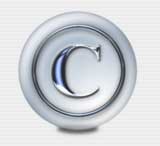Intellectual property can seem very like real property, especially when it is yours, and not some faceless corporation’s. As a result people feel that once they own it—especially if they have made it—they should go on owning it, much as they would a house that they could pass on to their descendants.
from a short but good Economist article on copyright suggesting copyright terms be shortened.
We look at things through the prism of our own experience, me as much as anyone, so when I consider copyright issues like this I recall past episodes where my or my authors’ intellectual property has been appropriated or claimed by others for commercial gain — and I’m all for protecting it. Tightly.
Whether it comes to standing on the shoulders of giants or debating the nonsense spouted by rogues or legends-in-their-own-lunchboxes, I think the safe path is to acknowledge your sources competently and get on with it.
Robert Kiyosaki encouraged this with a saying: “Always acknowledge the source of power”. e.g. it cost nothing for him and Marshall Thurber the creator of the ‘Money and You’ workshop to acknowledge the ‘keys to co-operation’ section of the course featuring the Prisoner’s Dilemma game, owed a lot to Robert Alexrod’s work on co-operation … rather than posing as the originator of that stuff. (It also meant when we came across Axelrod’s material in much more detail later, I didn’t feel gypped.)
The model I learned at university:
thesis > anti-thesis > synthesis
(which becomes the new thesis and the cycle goes on)
… does it for me.
(Sidenote: I also absorbed that academic intolerance for plagiarism is near total.)
“Don’t argue with me, argue with the model.”
— Buckminster Fuller
If, in 5 minutes or 50 years time, someone wants to refer to a concept or a checklist I presented in one of my books, well, Yay! Whether they agree or disagree doesn’t matter. If they fairly attribute and summarise my model then rip it to pieces while offering or developing their own model, using mine as a stepping stone, that’s terrific. Thus, knowledge advances.
That’s completely different to them ripping off my book virtually word-for-word and claiming the information presented in it as their own material, without acknowledgement. See, that’s theft — and sadly common in the get-rich-quick, shortcuts-to-success universe some people dwell in … and promote.
For me, a big issue is when people claim ‘authorship’ of an arrangement of information to commercially exploit it.
As we discussed recently in relation to the Facebook photos of a spruiker on stage in women’s underwear, the act of publishing them isn’t a copyright issue in the sense that there’s no commercial exploitation of the images. (Nor is it an invasion of privacy, in my view, when so many images exist on the internet. Nor defamatory unless they are fake — defamation relies on the publication of untrue statements being damaging.)
Trademarks — another angle
My companies own a number of trademarks. There is nothing to stop people tattooing those trademarks on their bodies or hanging a poster of them up in their bedroom, or spray-painting them on the roof of their car, or critically evaluating the design of them in an online discussion forum. The issue emerges when they commercially misuse my trademarks or something confusingly similar to market their own goods or services. The purpose of a trademark is to indicate origin, not to holus-bolus stop people using stylized images of stars or apples.
Note: Expressing any opinion of these things naturally opens one to charges of inconsistency or hypocrisy. Let me say it first: I am not perfect. I try to acknowledge sources, even many of the images on this site, but I don’t claim to be 100% squeaky clean. If I have offended your copyright or trademark, drop me a line and we’ll sort it out. – regards, Peter Aranyi.



[…] My standard disclaimer: (I ain’t saying I’m perfect!) applies. More thoughts on copyright here. […]
[…] references to another author’s work for the purposes of review and criticism (we’ve discussed this before) under the ‘Fair dealing’ provisions of the 1994 Copyright Act. Maybe […]